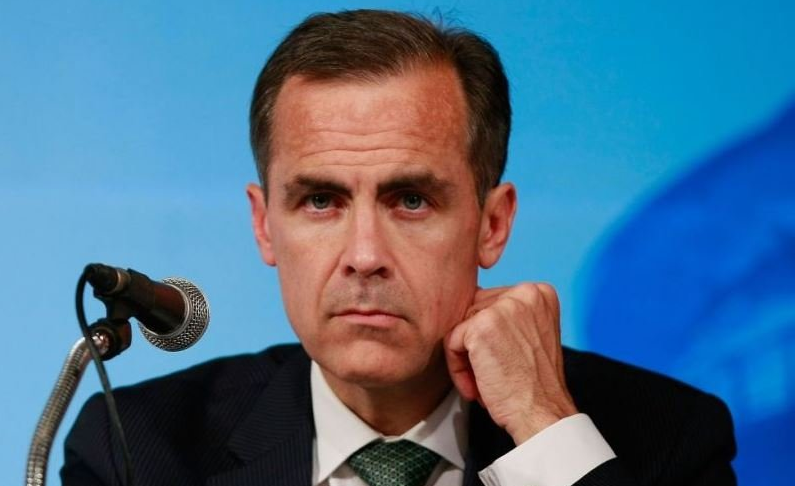Expectations are around 70% for a rate cut at the BoE Jan 30 monetary policy meeting
Earlier previews:
- Bank of England meet next week - here's a preview (no rate cut)
- What to watch ahead of the Bank of England meeting
Some comments now via RBS (for the bottom line, see the, errrr …. bottom line:
- A sharpish fall of 0.3% on the month means UK GDP is close to a standstill on the more usually presented quarterly basis. Total output grew by 0.1% in the three months to November 2019. The picture is a decent likeness to that initially sketched by the business surveys, with services lacklustre but just about growing (+0.1%), while production, pounded by both global and local winds, shrinking by 0.6%. We're also well placed for a final year-end showdown. If December flatlines, then GDP will fall in Q4, the 2nd quarterly fall in three, finger pinchingly close to a recession.
- Consumers were the main contributors to UK economic growth last year, so December's slump in retail sales is especially disappointing. The quantity bought in December was 0.6% lower than November, which itself was pretty weak. Sales in Q4 as a whole were down 1% on Q3, and we've now had 5 months without any growth. Only when you start making comparisons to 2018 does the picture get a little better, showing growth of 1.6%. Even the pace of growth online has cooled, but still managed to break the £2bn a week mark for the first time.
- Inflationary pressures eased unexpectedly in December with the UK's CPI slipping to a three-year low of 1.3% y/y. The drop was driven by services, falling from 2.5% y/y in November to 2.1% y/y. This marked a 20-month low. On the other hand, consumer goods inflation stabilised at 0.6% y/y, although petrol prices are on the rise again. The fact that services inflation is easing suggests the economy is slowing. The BoE's MPC are sharpening their interest rate cutting spears. A cut on 30th January looks a distinct possibility. Financial markets certainly think so.
